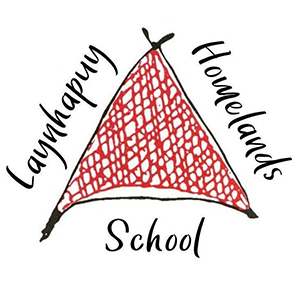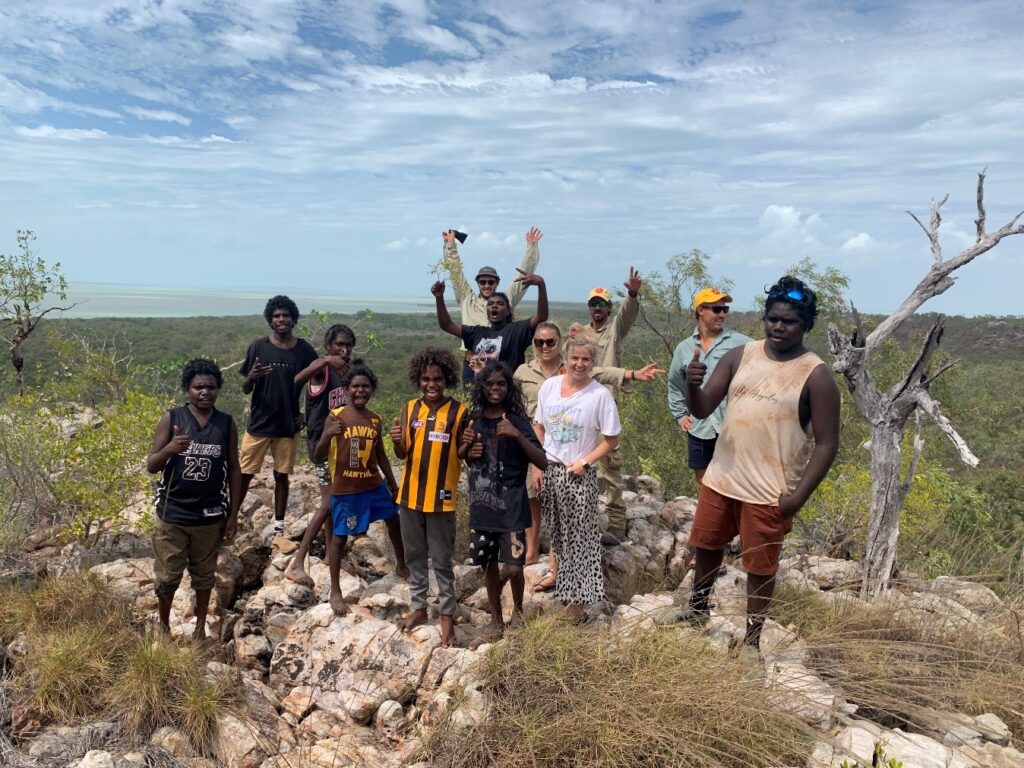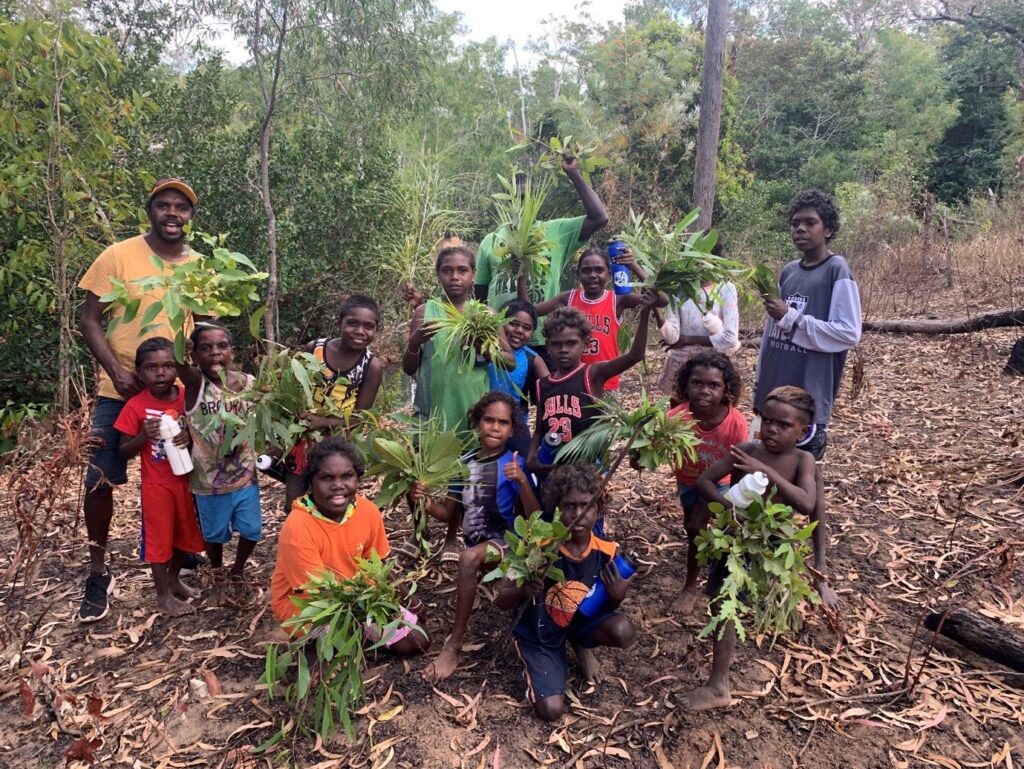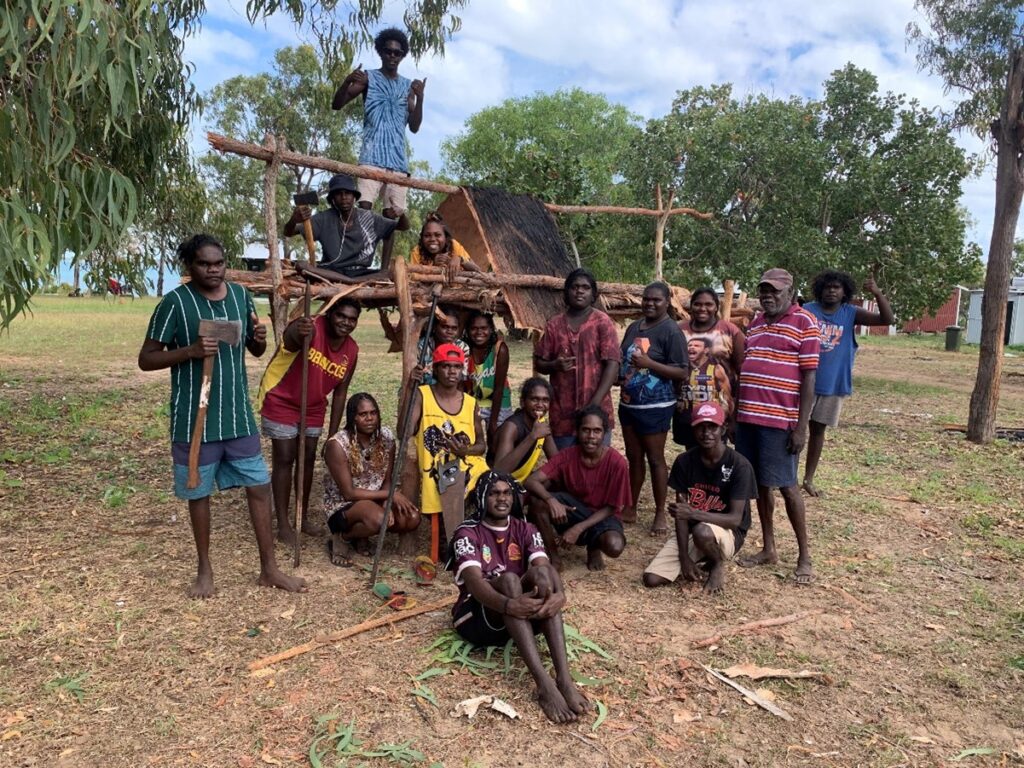Laynhapuy Homelands
Name of School
Laynhapuy Homelands School
Name of Ranger Group
Yirralka Rangers
What languages do you mainly speak in your community?
Yolŋu Matha and English
How many people live in your community?
8 communities ranging from 15 people to 70 people
When did the Learning on Country Program start in your community?
At inception of the LoC Program in 2012.
What does the Learning on Country Program mean to your community?
Homeland communities are places where Yolŋu students can live on country that they are strongly connected to through kinship and practice many aspects of Yolŋu life. Learning on Country activities allows students to apply concepts and skills that they are learning in other subjects to real-life experiences. Incorporating this type of learning into the school allows students to demonstrate and improve on strengths and take pride in the cultural and Yolŋu aspects of their learning.
Why is it important?
The Yambirrpa School Vision Statement, shared between Laynhapuy Homelands School and Yirrkala School demonstrates the key goals to support students in their journey to become well-rounded, two-worldly individuals. The following excerpts from this are demonstrated by the Laynhapuy Learning on Country Program:
“We see Yambirrpa Schools as an important part of the community development process which has the goal of achieving a self-determining, self-managing community. Our school programs will encourage our students to develop skills, hope and vision for their future.”
“Yambirrpa Schools recognise and value the importance of developing a strong identity and self-concept in the students. This will lead to confident, self-motivated, responsible students and will assist them to become ‘ralpa’ strong adults.”
The Yambirrpa School Vision Statement was developed by Yolŋu Elders and School Leaders and remains the most significant guiding document for Laynhapuy Homelands School. Each of the Laynhapuy Homelands School communities shows dedication to the Learning on Country Program. Community members support the teaching of students during Learning on Country activities, adding strong engagement for both students and whole of community.
What type of LoC activities happen at your community?
Our LoC Program has three main components: supporting the School’s Indigenous Language and Culture (ILC) Program; facilitating the delivery of Cert I, Cert II and Cert III Conservation and Ecosystem Management (CEM); and the coordination of other camps and events including Biodiversity Surveys, Galtha Rom and other collaborative activities as opportunities arise.
LoC staff, teachers and Rangers organise weekly excursions for students either in their local area or beyond, with a theme linked to the term ILC topic. This year, these excursions have involved identifying and collecting native plants, examining seasonal indicators, conducting beach clean-up, recording important Yolŋu stories and collecting materials to practice art and craft.
Tell us about the Rangers supporting the LoC Program. What lessons are they teaching the students about your country?
Yirralka Rangers are central to the Laynhapuy LoC Program. As cultural and environmental knowledge experts and role models with a presence in homelands, Rangers are perfectly positioned to support students’ learning in this space. As both an organisation and as individuals, Yirralka Rangers show strong dedication to supporting LoC activities and take pride in sharing the responsibility of educating students.
What future training or work opportunities are available in your community for LoC students?
The Laynhapuy LoC Program aims to improve students’ work readiness by co-delivering the Cert II Conservation and Ecosystem Management and organising and supporting work experience programs with Yirralka Rangers and other branches of Laynhapuy Homelands Aboriginal Corporation.
School-based ranger traineeships with Yirralka Rangers have been organised to transition suitable students who are interested in a ranger pathway into work after school. These traineeships are new, but are proving successful in training up the next generation of rangers and rewarding students who show dedication to school and motivation for work.
What other LoC Partnerships are happening in your community?
Laynhapuy Homelands LoC Program has had a strong partnership with Macquarie University for several years. This sees a collaborative biodiversity monitoring project conducted over two joint School-Rangers-University camps through the year. The camp teaches students about conservation and scientific methods of environmental monitoring and provides Macquarie University with the opportunity to include Yolŋu scientific and cultural knowledge in their study outcomes.
Laynhapuy Homelands Aboriginal Corporation (LHAC) enables people to live in homelands by providing health care, infrastructure maintenance, shop supplies and youth engagement in these very remote communities. LHAC is an essential partner to the Laynhapuy LoC Program and regularly supports learning activities and events in many ways. Laynhapuy Homelands LoC Program is proud to collaborate with other schools in the region including Gapuwiyak School, Yirrkala School, Baniyala Garraŋali School and Shepherdson College. The Learning on Country Programs across three of these sites make the collaboration possible and students are able to connect with their kin across the region.
The Laynhapuy Homelands LoC Program has also had support or co-delivery of learning activities and programs from BIITE, Buku-Larrŋgay Mulka Centre, CrocWise, AMRRIC, MAGNT, AIMS, NT Fisheries and Border Force in recent years.
What is something you are most proud of about LoC in your community?
The collaboration between homeland communities, the Yirralka Rangers and the Laynhapuy Homelands School is a mark of pride for the Laynhapuy LoC Program. With rangers and school teachers being so integral in these small communities, their work together becomes highly influential in students’ cultural and environmental education.
The LoC Program is critical to supporting this collaboration.








